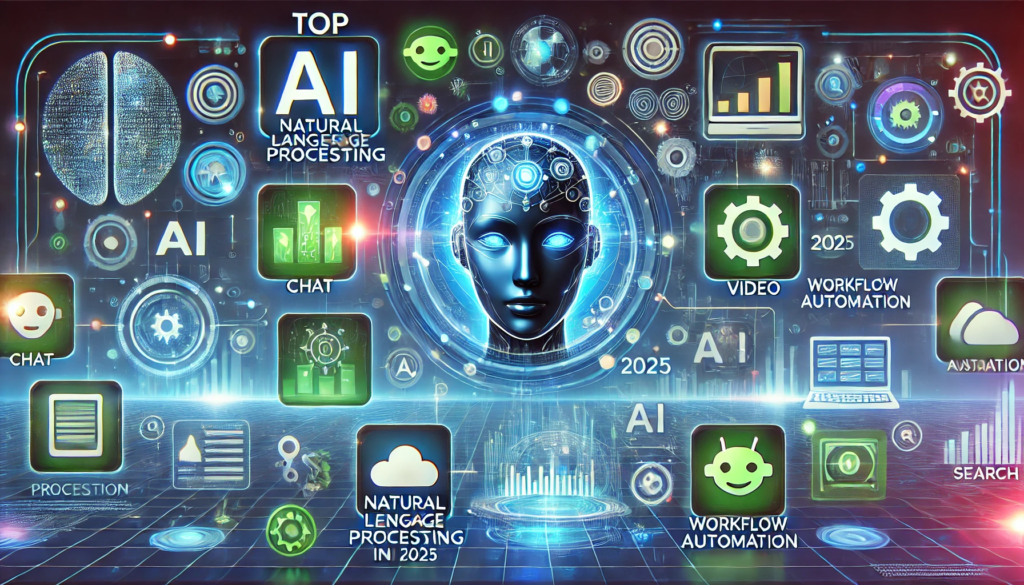As of January 28, 2025, the artificial intelligence landscape rapidly evolves with numerous platforms vying for user attention. This blog provides a comprehensive overview of the top AI platforms currently available, highlighting their features, pricing structures, and what they can do for users.
| Name | Link | Key Feature | Monthly Subscription Price | What It Allows You |
|---|---|---|---|---|
| ChatGPT | OpenAI | Advanced conversational AI with multimodal capabilities | Free / $20 (Plus) / $200 (Pro) | Writing, coding assistance, data analysis, and more |
| Google Gemini | Google Gemini | Ability to chain actions for complex tasks | Varies by usage | Integrated AI assistant for various Google services |
| Perplexity | Perplexity | Advanced AI search engine with real-time answers | Free / $20 (Professional) / $40 (Enterprise) | Quick searches, Pro queries, file uploads, API access |
| DeepSeek | DeepSeek | Open-source AI model with cost-effective APIs | Free / $0.14 (input tokens) / $0.28 (output tokens) | Multilingual support, personalized interaction |
| Google Cloud AI Platform | Google Cloud | Integrates AI into cloud services | Varies by usage | End-to-end AI deployment and management |
| AWS SageMaker | AWS | Full-cycle machine learning workflows | Varies by usage | Model training, deployment, and management |
| Microsoft Copilot | Microsoft | AI integration for productivity tools | Varies by plan | Enhanced productivity in Office applications |
| IBM Watson Assistant | IBM | Conversational AI for customer service applications | Free / $140 (Plus) | Automating customer interactions and support |
| NVIDIA Deep Learning AI | NVIDIA | GPU-accelerated deep learning | Varies by usage | High-performance model training |
| Vertex AI | Google Cloud | End-to-end AI platform for building ML models | Varies by usage | Simplifying the ML workflow from development to deployment |
| PyTorch | PyTorch | Dynamic neural network graphs | Free | Research and production-level machine learning |
| TensorFlow | TensorFlow | Large-scale machine learning deployment | Free | Building and training ML models |
| RapidMiner | RapidMiner | Collaborative data science operations | Free / $250+ | Data preparation, modeling, and deployment |
| H2O.ai | H2O.ai | Scalable open-source machine learning | Free / $1,000+ | Building ML models with ease |
| BigML | BigML | Visual-based machine learning models | Free / $50+ | Creating and sharing ML models easily |
| Salesforce Einstein AI | Salesforce | CRM-integrated AI insights | Varies by plan | Enhanced customer relationship management |
| Intel AI | Intel | Hardware optimized for AI processing | Varies by usage | Supports efficient model training leveraging Intel hardware |
FAQ
1. What is an AI platform?
AI platforms are software solutions that provide tools and services for developing, deploying, and managing artificial intelligence applications. They typically include capabilities for machine learning, natural language processing, computer vision, and more.
2. Which AI platform is the best for beginners?
For beginners, platforms like ChatGPT or Google Cloud AI Platform are recommended due to their user-friendly interfaces and extensive documentation. They offer resources that help users get started with minimal technical expertise.
3. Are there free options available in these platforms?
Yes, many of the platforms listed offer free tiers or trial versions. For example, ChatGPT provides a free version alongside paid subscriptions, while TensorFlow and PyTorch are entirely free to use.
4. How do I choose the right AI platform for my needs?
Choosing the right platform depends on several factors including your specific use case (e.g., natural language processing vs. image recognition), budget constraints, ease of use, scalability options, and integration capabilities with existing systems.
5. Can these platforms be used for commercial purposes?
Most of the platforms listed can be used for commercial purposes; however, it’s essential to review their terms of service and licensing agreements to ensure compliance with any restrictions or requirements.
6. What industries are benefiting from these AI platforms?
Industries such as healthcare, finance, retail, education, and technology are benefiting significantly from these platforms. They leverage AI for tasks like predictive analytics, customer service automation, fraud detection, and personalized marketing.
Conclusion
The artificial intelligence landscape in 2025 is diverse and competitive. Platforms like ChatGPT and Perplexity lead the charge in user engagement with innovative features tailored to various needs. Each platform offers unique capabilities that make it essential to choose the right one based on specific requirements such as pricing, functionality, and ease of use. As technology continues to evolve, these platforms will likely introduce even more advanced features that will shape the future of artificial intelligence.
